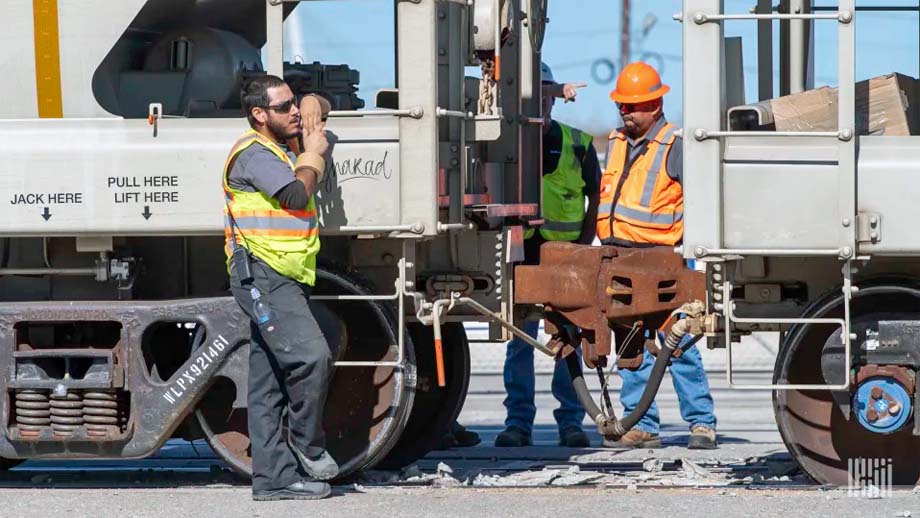
(Link fails continuously)
Canada - The union (TCRC) representing more than 9,000 CN and CPKC workers has organized a second
strike vote amid stalled contract negotiations with the railroads.
"It is clear we cannot rely on a timely conclusion to these unfortunate circumstances and must protect our rights
regardless of outcome," the Teamsters Canada Rail Conference (TCRC) said in a news release.
On 1 May 2024 CN and CPKC rail workers voted to authorize a strike that could have begun on 22 May 2024.
Canadian Labor Minister Seamus O'Regan referred the rail worker dispute to the Canada Industrial Relations Board (CIRB)
on 13 May 2024 indefinitely pausing any possible work stoppage until the CIRB issues a decision on the potential
impacts a strike could have on the country's safety.
TCRC's second strike vote began Friday and will end on 29 Jun 2024 as the current strike mandate is set to expire on
30 Jun 2024.
Canadian labour laws prohibit unions from declaring a strike unless its members have approved walking off the job in
the previous 60 days.
If the CIRB rules that a strike would not cause a serious threat to public safety, the earliest a strike could occur
would be mid-July, according to CPKC.
"It is unlikely the parties will be in a position to initiate a legal strike or lockout before mid-July or
later.
In any event, a legal strike or lockout cannot occur until at least 72 hours after the CIRB renders a decision,"
CPKC said in a statement.
TCRC said it has sent the CIRB written submissions and attended a pair of in-person meetings with railroad officials
but has received "no indication" as to how long the negotiation process could last.
"We have no indication how long this process will take, or what an outcome could possibly look like," TCRC
said.
"The result is a frustrating process. Both carriers have completely withdrawn any commitment to negotiate since
the referral was issued, which already was almost non-existent since the sessions began last fall."
CPKC and CN rail workers, including conductors, engineers, yard workers, and traffic controllers are seeking higher
wages, as well as concessions in crew scheduling, hours of work, and fatigue management.
"CPKC aims to gut the collective agreement of all safety-critical fatigue provisions," TCRC
said.
"CN has offered the union to keep some of its language around fatigue contingent on the acceptance of a scheme
where workers would be forced to relocate across the country for several months at a time to fill labor shortages in
remote areas of the country."
CN and CPKC have asked Canadian authorities to appoint an independent arbitrator to help with the
negotiations.
"CN has been in negotiation with the TCRC since November 2023 to reach an agreement that is good for both
parties. Unfortunately, we are no closer to a deal. The uncertainty around the timing of a resolution and the prospect
of a labour disruption are hurting CN, our employees, our customers, and the Canadian economy," CN said in a
statement.
Noi Mahoney.
(likely no image with original article)
(usually because it's been seen before)
provisions in Section 29 of the
Canadian Copyright Modernization Act.
